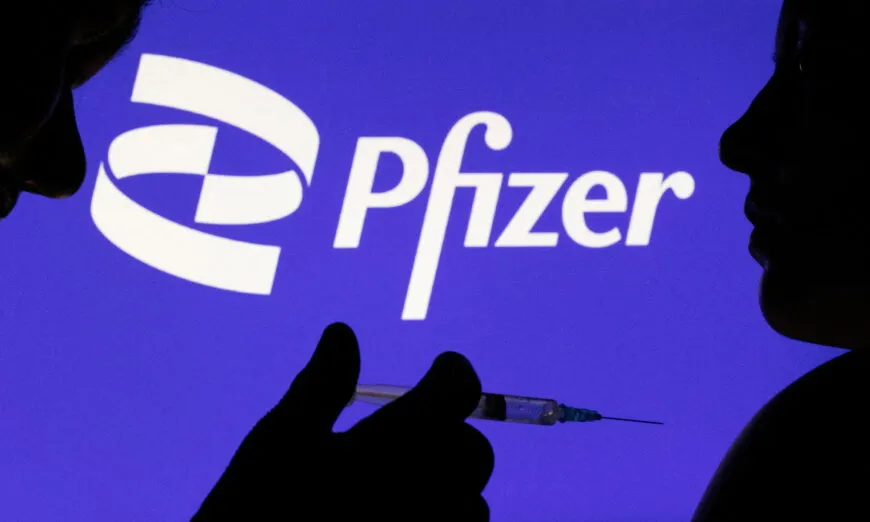Table of Contents
There’s now been a few releases of what government’s around the world signed up to with Covid vaccine manufacturers.
In mid-August the Health Justice Initiative won their case in South Africa and secured the release of all Covid vaccine contracts (in stages). So far it’s similar to other Pfizer contracts that were already released, where a clause states that neither long term effects nor efficacy is known. But the South African Pfizer contract does have fun wording that the vaccine is “aspirational” in nature.
New Zealand’s primary contract was with Pfizer. To the end of June 2023 $1.3 billion has been spent on purchasing Covid vaccines – the vast majority of that amount was on Pfizer, the preferred vaccine. Significantly smaller amounts were bought from Moderna and AstraZeneca.
However despite these huge sums – there’s been no movement on releasing the contracts in New Zealand.
In June the Ombudsman, after 17 complaints and reviewing the actual contracts, upheld the New Zealand government’s refusal to release these contracts. The Ombudsman found releasing the full contracts, “would risk compromising the Government’s ability to secure agreements to purchase Covid-19 vaccines.” I’m unsure why, when the bulk of population-wide vaccine purchasing for Covid is now over.
But the Ombudsman did recommend that the Ministry of Health release a summary of the signed contracts on their website, and listed topics the summary should cover.
The 7-page summary was published on the 18th of September. From the Ministry of Health, “The summary has been developed by Manatu Hauora, Pharmac and Treasury in consultation with vaccine suppliers Pfizer/BioNTech, AstraZeneca, Novavax and Janssen.”
They also say, “The summary outlines the significant uncertainty in mid 2020 around whether an effective COVID-19 vaccine was possible, what technologies would need to be involved in its creation, possible side effects, and the ability for global suppliers to manufacturing at scale and pace. This led New Zealand to invest, through Advanced Purchase Agreements, in a portfolio of different vaccines to manage the risk that any one vaccine might be ineffective, unavailable, or unsuitable. This ensured New Zealanders had access to early vaccines at a time of high global demand.”
While the term “safety” comes up 11 times in the summary – the 7 page summary is surprising broad and little is contained within it that isn’t already in the public domain.
On the subject of indemnities the summary noted, “…This means that even when a contractual indemnity is not provided to pharmaceutical companies, ACC assumes liability for a vaccine-related treatment injury.” If the vaccines weren’t safe – no matter, it was assumed ACC under its existing scheme will cover for injuries.
They also note that the contracts relied on Medsafe approval. A document release covered by Cranmer’s Substack, found that Medsafe were uncertain when reviewing the Pfizer vaccine in early 2021 as, “…the benefit risk balance of the vaccine was not clear because of data limitations.”
In fact, they explicitly stated, “Medsafe is unable to recommend that this product be granted consent. It is therefore recommended that the application be referred to the Medicines Assessment Advisory Committee (MAAC) under section 22(2) of the Medicines Act 1981 for their consideration.”
MAAC did approve the Pfizer vaccine yet added, “The data on long terminal half-life of the lipid nanoparticles was considered unusual but unlikely to be a safety concern, as only two doses are intended to be administered.”
4 to 6 doses have now been recommended to most adults in New Zealand since the Pfizer Covid vaccine became available.
On these matters, the summary simply says, “For those vaccines that gained Medsafe approval, the Government agree to accept a certain amount of risk regarding long-term effects and efficacy of the vaccines including associated adverse effects before full long-term data was provided to Medsafe demonstrating acceptable safety, efficacy and quality.”
New Zealand’s entire elimination strategy repeatedly hinged on vaccination as its salvation. The Pfizer Covid vaccine was approved for use in February 2021.
By the end of April 2021, mandates for border workers approved by Cabinet. Followed by mandates for health care, police staff, teachers and hospitality and more.
Overall the summary, says very little that wasn’t already in the public domain around the process of Covid vaccine purchasing and expectations. It’s a disappointing read.
A note to readers – I have a full history of all kinds of topics, like the decaying advice of the Covid advisory group and the mistruths behind dose intervals advice in the archives. If you’re making a submission to oh a Royal Commission of Inquiry or just need to bring receipts – I hope the references and links in the posts will help you. Thanks for reading.









